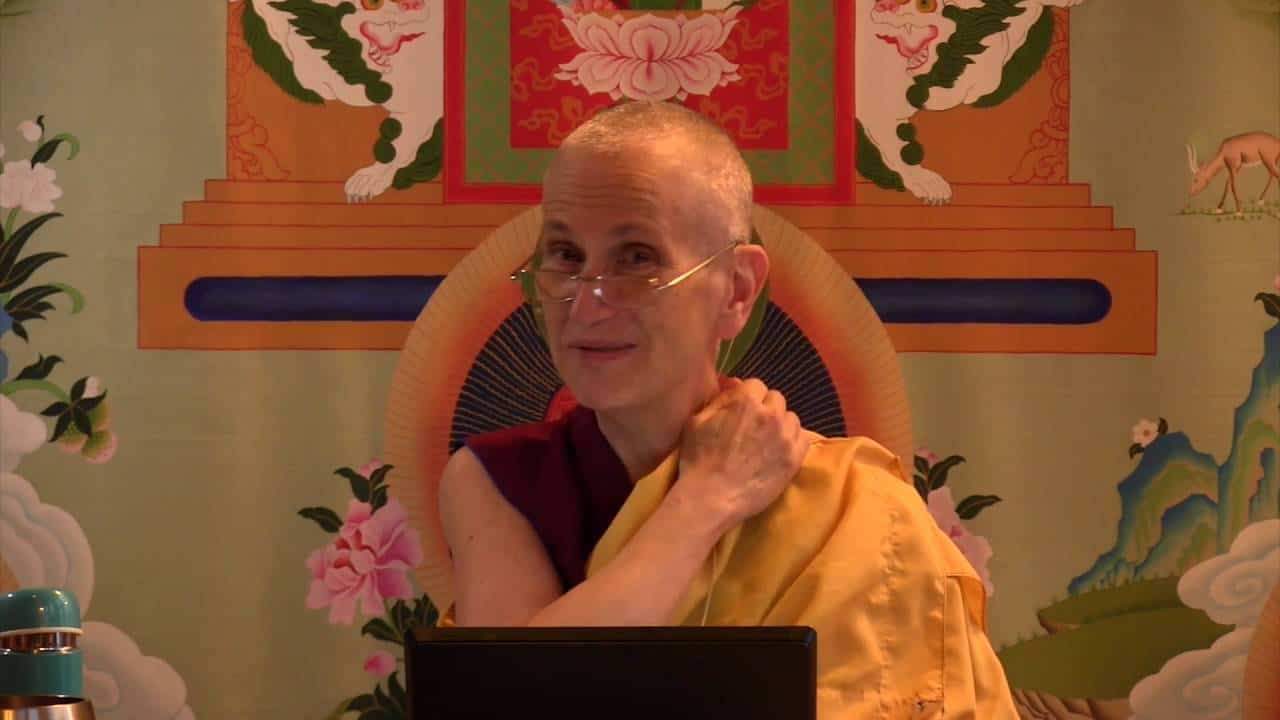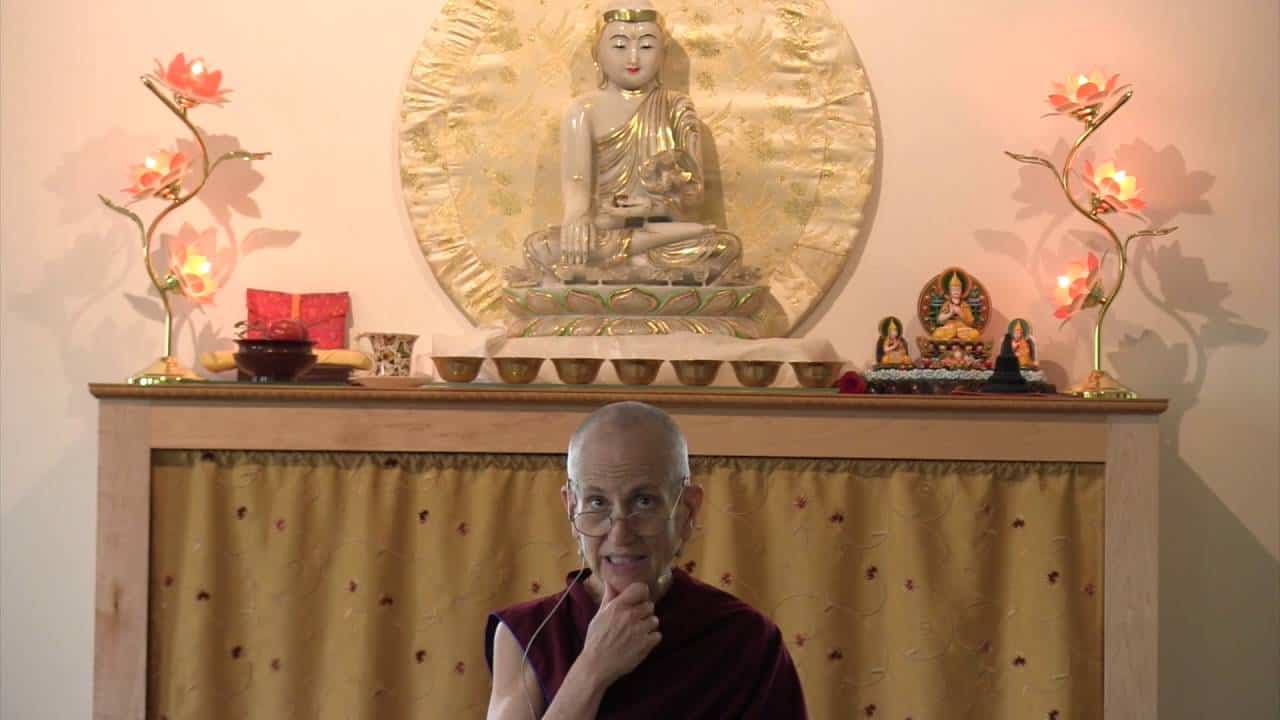Equanimity—freedom from bias
The text turns to training the mind on the stages of the path of advanced level practitioners. Part of a series of teachings on the Gomchen Lamrim by Gomchen Ngawang Drakpa. Visit Gomchen Lamrim Study Guide for a full list of contemplation points for the series.
- The disadvantages of apathy toward strangers
- Short reflection on equanimity
- How the mind is extremely narrow when there is attachment or anger
- We are the ones who create the categories of friends, enemies and strangers
- How to turn your mind toward equanimity and away from bias
Gomchen lamrim 61: Equanimity (download)
Contemplation points
- Consider friend, enemy and stranger as follows:
- Think of a dear friend for whom you have positive feelings. Are you attached? Why do you have that attachment?
- Now think of someone you really can’t stand. Ask yourself why you feel that way. Without judging your responses, listen to the reasons your mind gives.
- Then think of some strangers, where you don’t have feelings one way or the other. Ask yourself why you feel apathy towards that person.
- What is the common thread that you notice when doing this contemplation?
- Venerable Chodron said that WE are the ones that create these categories and then put beings in them. Contemplate this and see how it operates in your own life.
- Consider how changeable these categories are, using examples from your own life.
- Cultivate a sense of equanimity, balancing the bias you hold for friend, enemy and stranger.
Venerable Thubten Chodron
Venerable Chodron emphasizes the practical application of Buddha’s teachings in our daily lives and is especially skilled at explaining them in ways easily understood and practiced by Westerners. She is well known for her warm, humorous, and lucid teachings. She was ordained as a Buddhist nun in 1977 by Kyabje Ling Rinpoche in Dharamsala, India, and in 1986 she received bhikshuni (full) ordination in Taiwan. Read her full bio.


